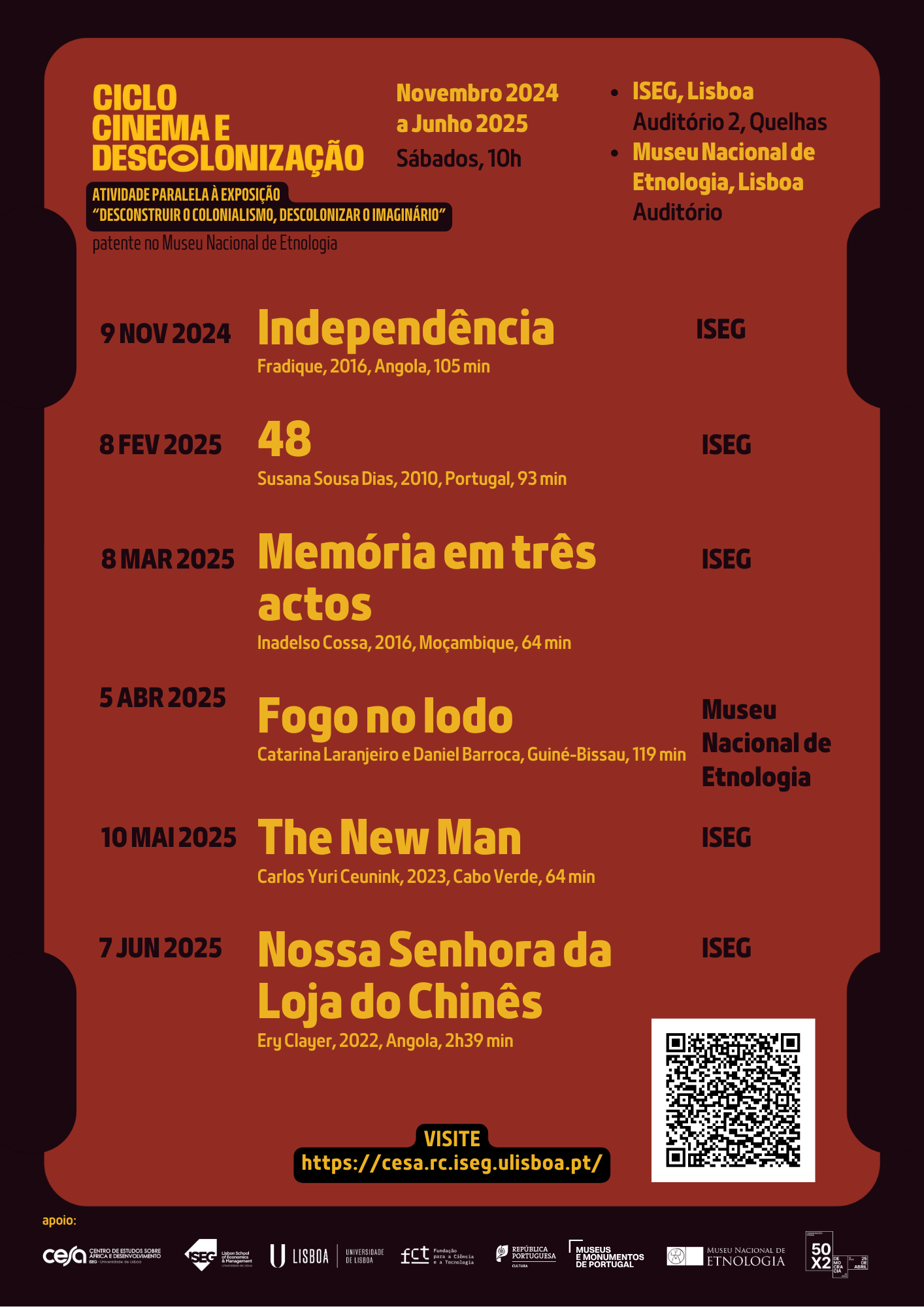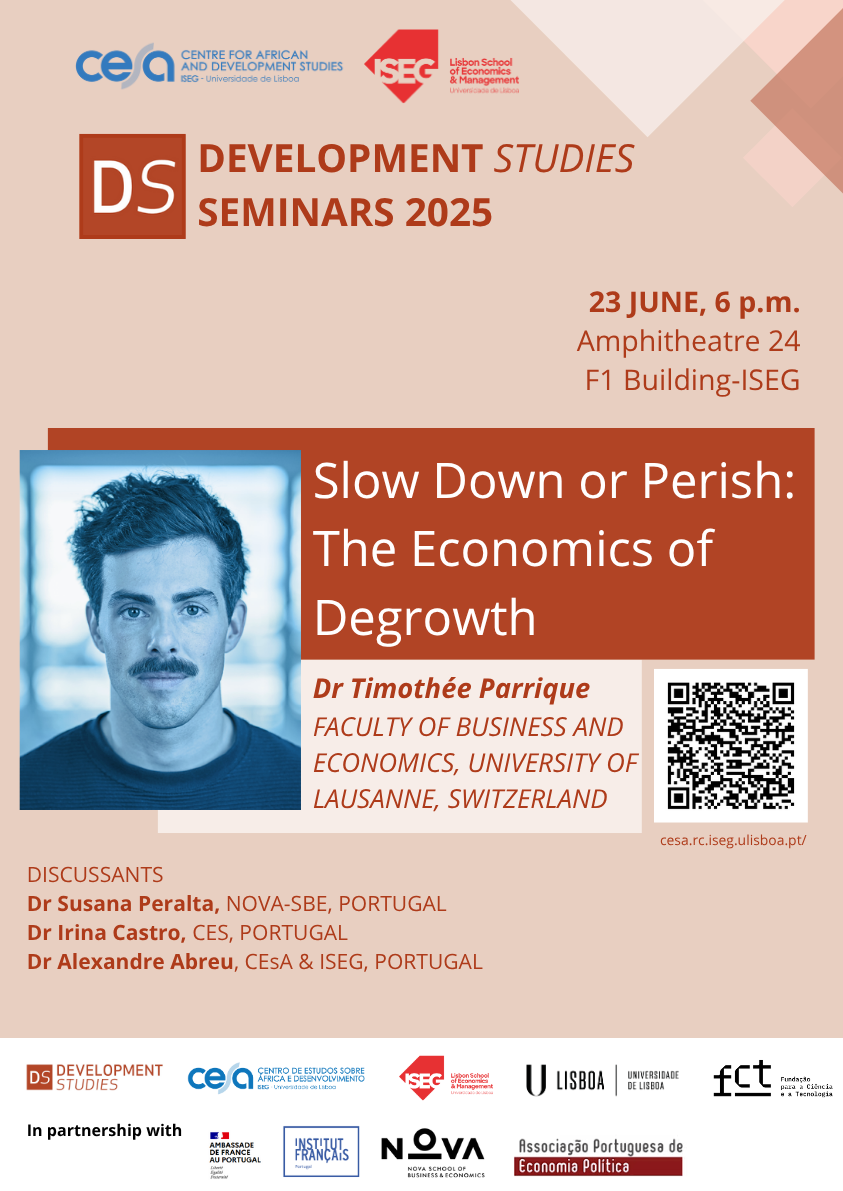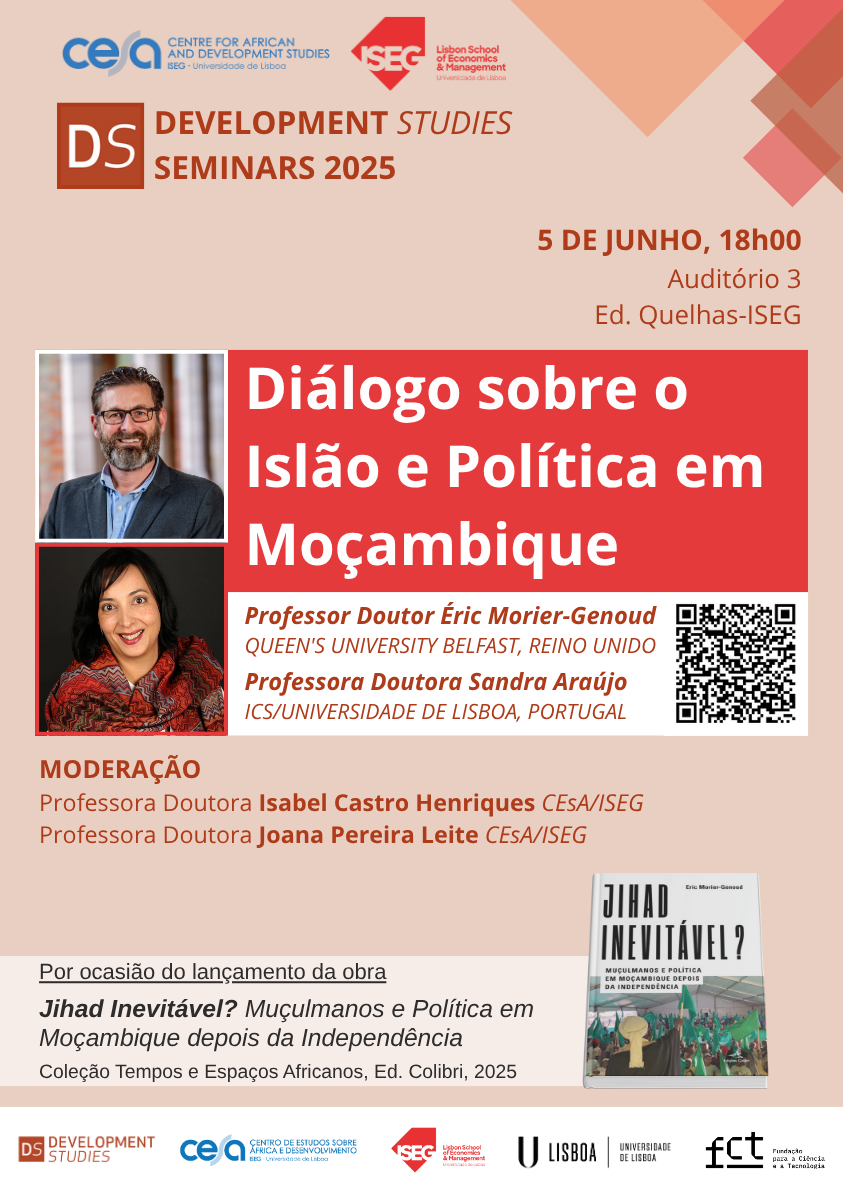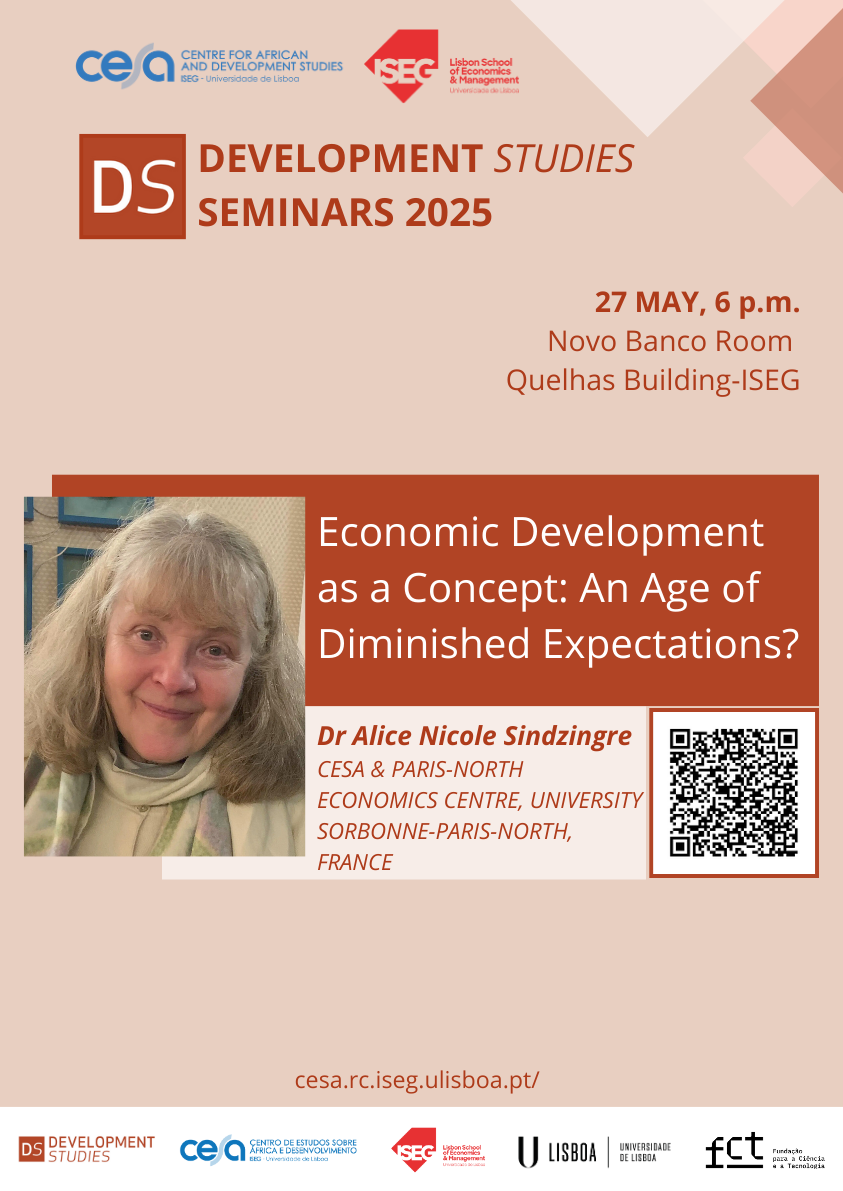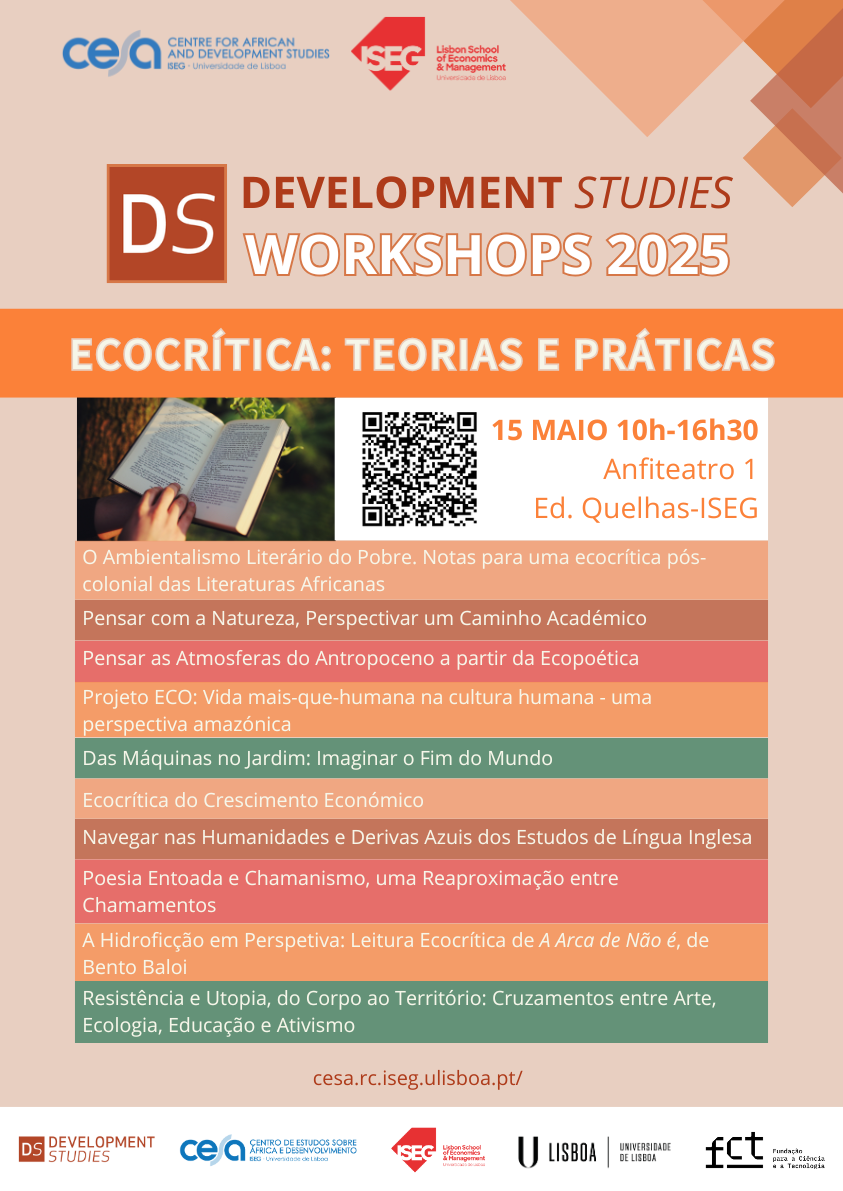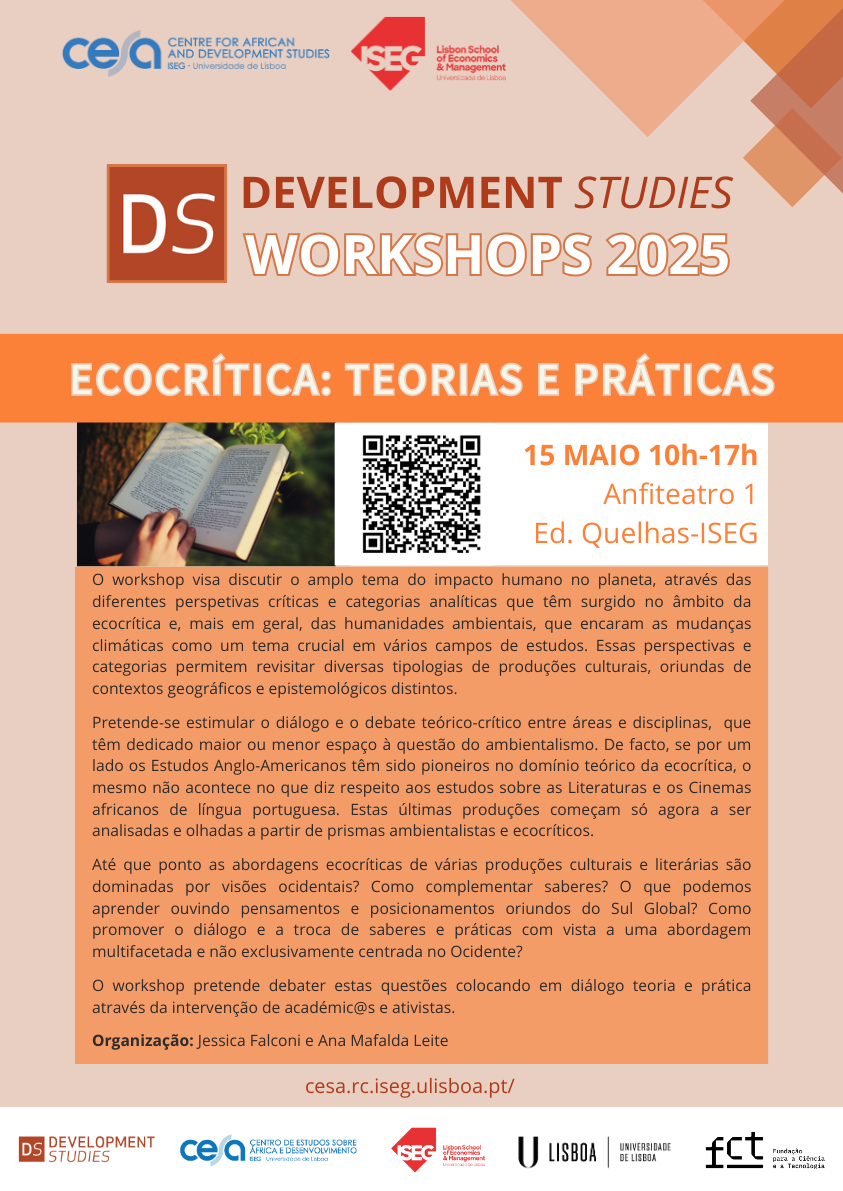CESA
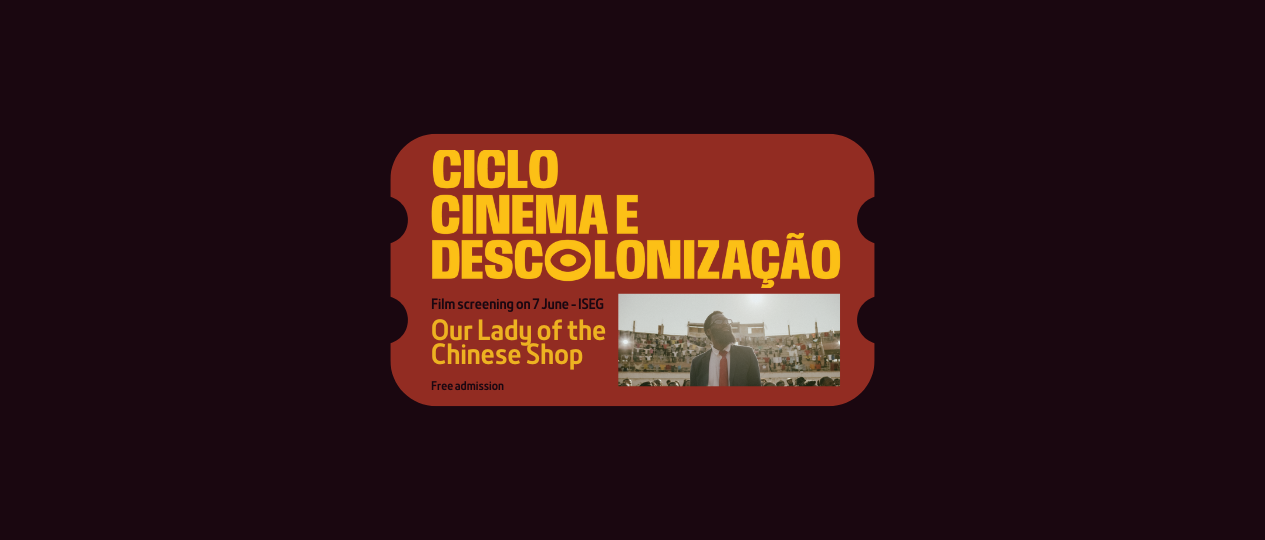
June session of the Cinema and Decolonisation Cycle to screen the Angolan drama Nossa Senhora da Loja do Chinês (‘Our Lady of the Chinese Shop’) at ISEG with free admission
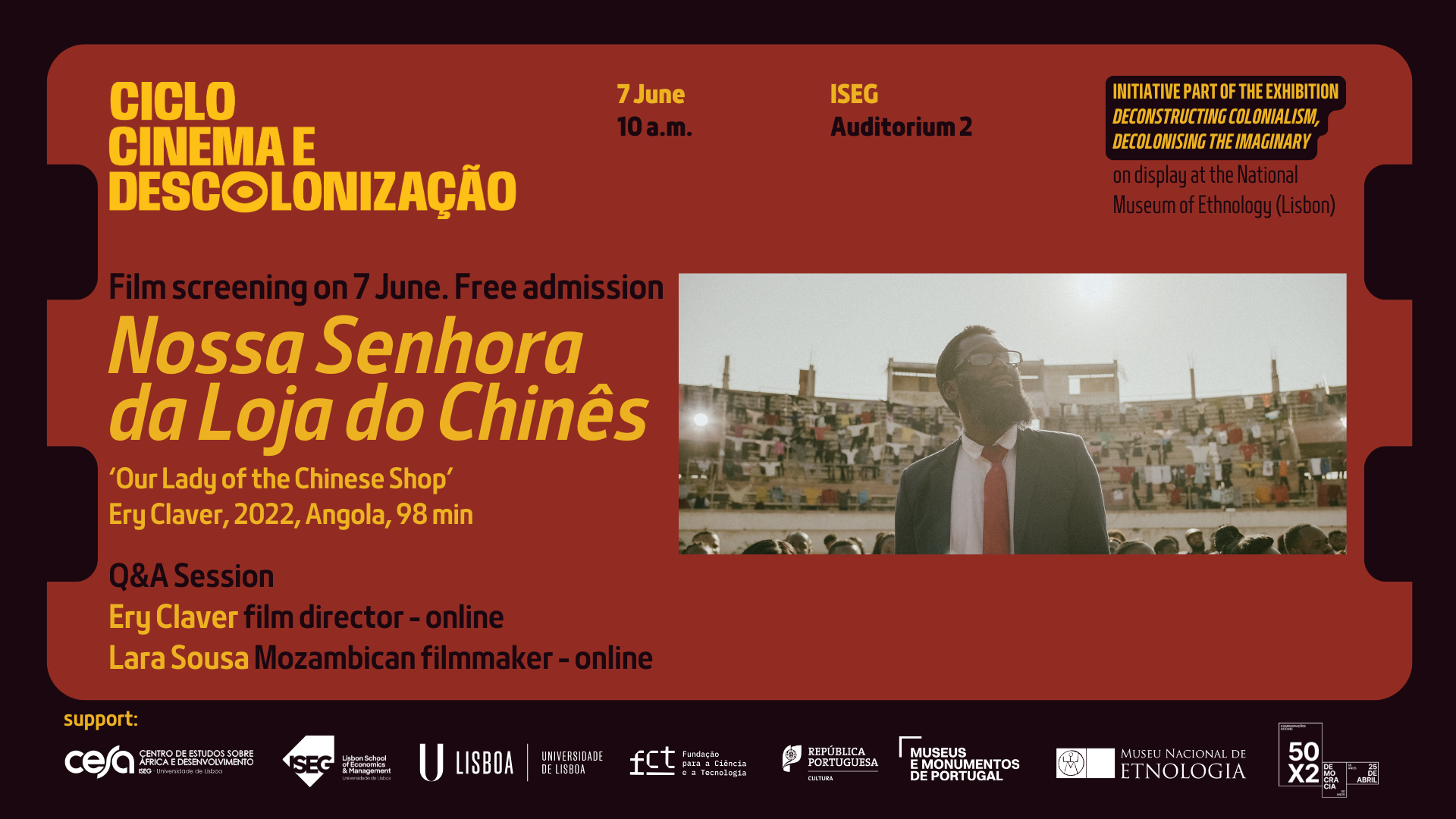
The last session of the 2024/2025 season of the Cinema and Decolonisation Cycle will take place on 7 June (Saturday). The cycle has been running since November 2024, hosting cineclub-style sessions to explore the legacies and memories of decolonisation. The closing session of this season will feature a screening of the Angolan drama Nossa Senhora da Loja do Chinês (‘Our Lady of the Chinese Shop’, Ery Claver, 2022, Angola, 98 min). The film screening will be held at 10:00 a.m. in the Auditorium 2 of the ISEG (Rua do Quelhas 6, Quelhas Building, 2nd Floor), with free admission. Following the film screening, a Q&A session will take place with the participation of the film director, Ery Claver (online), and the Mozambican filmmaker Lara Sousa (online).
Nossa Senhora da Loja do Chinês won the Jury Prize for Best Feature Film in the International Competition at the 42nd edition of the Festival International du Film D’Amiens (FIFAM), and the Award for Best Soundtrack at the 28th edition of Africa’s largest film festival, FESPACO – the Pan-African Film and Television Festival of Ouagadougou. It was also nominated for the “Best Film” award at both the 20th edition of the Tarifa~Tangier African Film Festival and the 1st edition of the Red Sea International Film Festival, in Jeddah, Saudi Arabia.
Synopsis – Nossa Senhora da Loja do Chinês (Ery Claver, 2022, Angola, 98 min)
When a chinese merchant brings to a neighbourhood of Luanda a peculiar holy plastic figure of Our Lady, a mourning mother will seek peace, a committed barber starts a new cult and a stray kid will look for revenge for his lost friend. This bizarre urban tale will reveal a family and city facade full of resentment, greed and torment.
Credits
Written and Directed by: Ery Claver
Producer: Jorge Cohen
Executive Producers: Sílvio Nascimento e Elias Ribeiro
Director of Photography: Eduardo Kropotkine
Art Direction: Prudênciana Hach
Assistant Director: Kamy Lara
Production Director: Rossana David
Main Cast: Cláudia Púcuta, David Caracol e Willi Ribeiro
Narrator: Meili Li
Original Music: Ismael Suama
Editor: Zeno Monyak
Sound Engineer: Oswald Juliana
Camera Assistant: Alfredo Tino
Tradução Mandarim: Xinyi Li
Awards
Best Original Score – 28th edition of FESPACO (Pan-African Film and Television Festival of Ouagadougou)
Jury Prize for Best Feature Film – Amiens International Film Festival, France
Best Southern African Actress – Sotigui Awards 2023, awarded to Cláudia Púcuta for her performance as Domingas
Nomination for Best Film – 20th edition of the Tarifa-Tangier African Film Festival, Seville, Spain
Nomination for Best Film – 1st edition of the Red Sea International Film Festival, Jeddah, Saudi Arabia
Official Selection – Screened at several international festivals, including the International Film Festival of India, Porto Post Doc Film Festival, Festival do Rio, BFI London Film Festival, Film Fest Ghent, and Göteborg Film Festival
Get to know the director:
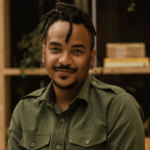 Ery Claver is one of the most versatile filmmakers in Angola. He began his career as a cameraman, working on numerous television programs and documentaries. In 2013 he joined the collective Geração 80 and deepened his style as Director of Photography working on the short films “Concrete Affection – Zopo Lady” (2014), and “Havemos de Voltar” (2017), both directed by Kiluanji Kia Henda. As a director he has signed several short films, most notably “Lucy in the Sky with Traffic Lights” (2018) in partnership with Gretel Marín and “Enóquio que não tinha coração” (2020) in partnership with his brother, Evan Clever. Ery has had his work screened at several international festivals, most notably the Clermont-Ferrand International Short Film Festival, in France, VIDEOEX – International Experimental Film and Video Festival, in Zurich, and FCAT – African Film Festival, in the cities of Tarifa and Tangier. In 2019, Ery went on to co-write and do the direction of photography of the award winning Angolan film “Air Conditioner”, directed by Fradique. Recently he just finished directing his first feature film “Our Lady of the Chinese Shop
Ery Claver is one of the most versatile filmmakers in Angola. He began his career as a cameraman, working on numerous television programs and documentaries. In 2013 he joined the collective Geração 80 and deepened his style as Director of Photography working on the short films “Concrete Affection – Zopo Lady” (2014), and “Havemos de Voltar” (2017), both directed by Kiluanji Kia Henda. As a director he has signed several short films, most notably “Lucy in the Sky with Traffic Lights” (2018) in partnership with Gretel Marín and “Enóquio que não tinha coração” (2020) in partnership with his brother, Evan Clever. Ery has had his work screened at several international festivals, most notably the Clermont-Ferrand International Short Film Festival, in France, VIDEOEX – International Experimental Film and Video Festival, in Zurich, and FCAT – African Film Festival, in the cities of Tarifa and Tangier. In 2019, Ery went on to co-write and do the direction of photography of the award winning Angolan film “Air Conditioner”, directed by Fradique. Recently he just finished directing his first feature film “Our Lady of the Chinese Shop
About the Cinema and Decolonisation Cycle
The sessions of the Cinema and Decolonisation Cycle will continue until June 2025, with screenings taking place in Auditorium 2 at ISEG (with the exception of the 5 April, which will be held at the National Museum of Ethnology). This initiative runs parallel to the exhibition Deconstructing Colonialism, Decolonising the Imagination, on display at the National Museum of Ethnology until 2 November.
Check out the programme below:
Decolonisation must be understood as an ongoing process, one that needs to be embraced and integrated into social, political, cultural, and personal dynamics. The project aims to create an open, dynamic space for sharing memories, narratives, dialogues, and reflections. It is coordinated by researcher Jessica Falconi (CEsA/ISEG/ULisboa) and curated by researcher and filmmaker Isabel Noronha (CEsA/ISEG/ULisboa) and filmmaker Camilo de Sousa.
Coordination: Jessica Falconi (CEsA/ISEG/ULisboa)
Curation: Isabel Noronha (CEsA/ISEG/ULisboa) and Camilo de Sousa
Scientific Consulting: Isabel Castro Henriques (CEsA/ISEG/ULisboa), Joana Pereira Leite (CEsA/ISEG/ULisboa), and Ana Mafalda Leite (CEsA/ISEG/ULisboa)
Collaboration: Luca Fazzini and João Moreira Silva
Support: CEsA/ISEG/ULisboa
Read more:
Nossa Senhora da Loja do Chinês – Geração 80
Cinema and Decolonisation Cycle | Screening of the film “Our Lady of the Chinese Shop” – ISEG Website
Programme for the 2024/2025 season of the Cinema and Decolonisation Cycle, in parallel with the exhibition ‘Deconstructing Colonialism, Decolonizing the Imagination’
Author: CEsA Communication Team (comunicacao@cesa.iseg.ulisboa.pt)
Image: Reproduction
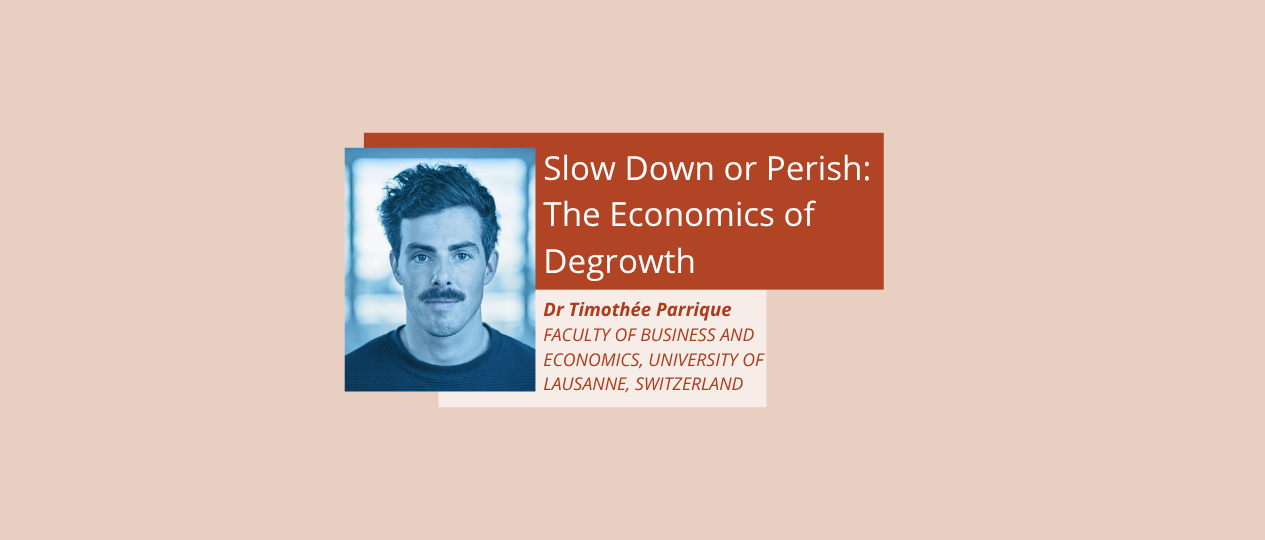
Development Studies Seminars 2025 | Slow Down or Perish: The Economics of Degrowth
The Development Studies Seminars are an initiative that, since 1991, promotes research carried out in the areas of study of the Masters in Development and International Cooperation (MCDI) of ISEG and the PhD Programme in Development Studies of the University of Lisbon
Development Studies Seminars 2025
Topic: Slow Down or Perish: The Economics of Degrowth
Speaker: Dr Timothée Parrique (Faculty of Business and Economics, University of Lausanne, Switzerland)
Discussants: Dr Susana Peralta (Nova-SBE), Dr Irina Castro (CES, Universidade de Coimbra), and Dr Alexandre Abreu (CEsA and ISEG)
Date: 23 June 2025 (Monday)
Hour: 6 p.m. – 8 p.m.
Venue: Amphitheatre 24, 2nd Floor – Francesinhas 1 Building, ISEG (Access by Rua das Francesinhas, Lisbon, Portugal)
Free admission, in person event. Lecture in English.
In partnership with:Embassy of France in Portugal, French Institute of Portugal, Nova SBE – Nova School of Business & Economics, and EcoPol – Portuguese Association of Political Economy.
About the speaker
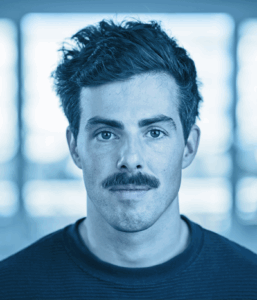
Timothée Parrique is an economist, originally from Versailles, France. He is currently a researcher at HEC Lausanne – The Faculty of Business and Economics of the University of Lausanne in Switzerland. He works on macro-ecological planning in Switzerland part of the STRIVE research project. He holds a PhD in economics from the Centre d’Études et de Recherches sur le Développement (University of Clermont Auvergne, France) and the Stockholm Resilience Centre (Stockholm University, Sweden). Titled “The political economy of degrowth” (2019), his dissertation explores the economic implications of degrowth.
Parrique is the author of “Ralentir ou périr. L’économie de la décroissance” (September 2022, Seuil), a wide-audience book adaptation of his PhD dissertation which has sold more than 40,000 copies in France and is being translated into eight languages. He frequently writes about green growth and decoupling; he is the lead author of “Decoupling debunked – Evidence and arguments against green growth” (2019), a report published by the European Environmental Bureau (EEB).
Author: CEsA Communication (comunicacao@cesa.iseg.ulisboa.pt)
Images: CEsA/Reproduction
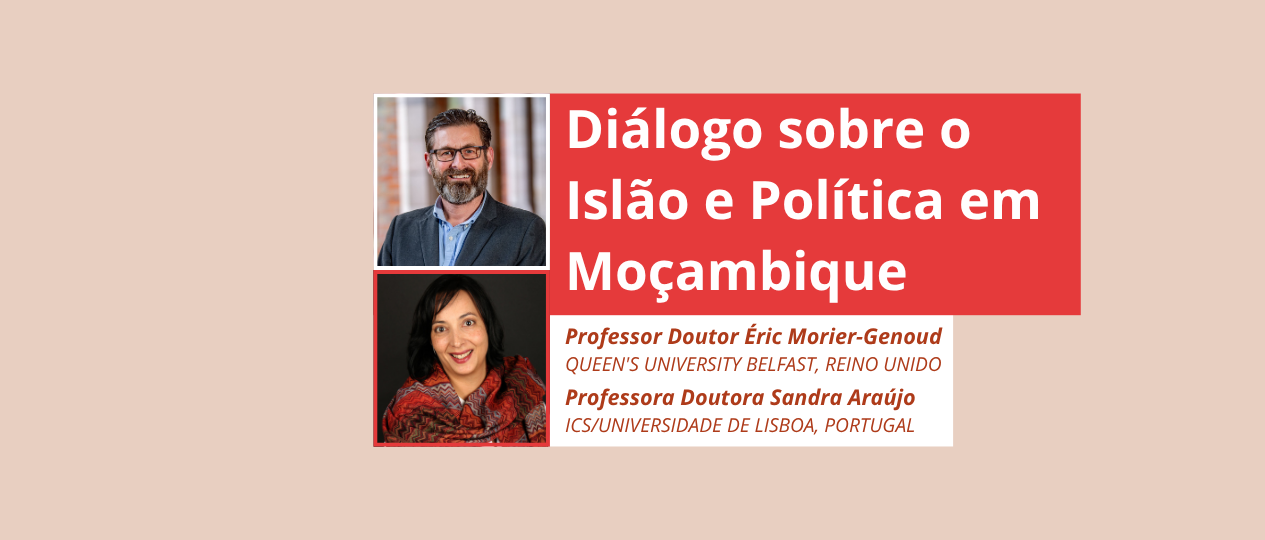
Development Studies Seminars 2025 | Diálogo sobre o Islão e Política em Moçambique
The Development Studies Seminars are an initiative that, since 1991, promotes research carried out in the areas of study of the Masters in Development and International Cooperation (MCDI) of ISEG and the PhD Programme in Development Studies of the University of Lisbon
Development Studies Seminars 2025
Topic: Diálogo sobre o Islão e Política em Moçambique (Dialogue on Islam and Politics in Mozambique)
On the occasion of the launch of the book Jihad Inevitável? Muçulmanos e Política em Moçambique depois da Independência (Inevitable Jihad? Muslims and Politics in Mozambique after Independence) (Tempos e Espaços Africanos series, Colibri Publishing, 2025)
Book author and speaker of the session: Dr Éric Morier-Genoud (Queen’s University Belfast, UK)
Speaker: Dr Sandra Araújo (ICS, Universidade de Lisboa, Portugal)
Moderation: Dr Isabel Castro Henriques (CEsA/ISEG RESEARCH/ISEG, Portugal), and Dr Joana Pereira Leite (CEsA/ISEG RESEARCH/ISEG, Portugal)
Date: 5 June 2025 (Thursday)
Hour: 6 p.m. – 8 p.m.
Venue: Auditorium 3, 2nd Floor Quelhas Building, ISEG (Access by Rua do Quelhas 6 1200-731, Lisbon, Portugal)
Free admission, in person event. Lecture in Portuguese.
About the speaker

Eric Morier-Genoud‘s research interests focus on history, religion, and politics in Africa, the Portuguese-speaking world and Europe. He has published books on the history of pre-colonial Mozambique, the history of Apartheid in South Africa and Switzerland, the history of the Roman Catholic church and the history of Islam in Mozambique. He presently works on the jihadi insurgency in northern Mozambique, on Irish missionaries in the world, and the history of Africans in Belfast.
He has undertaken conflict resolution work in the 2010s and many consultancies, and on that basis he intervenes regularly in media such as The Times, BBC World Service, Le Monde, Público, Vatican News, Voice of America, Rádio Portugal, Swedish Radio, Swiss National Radio, Radio Al Aan, etc.
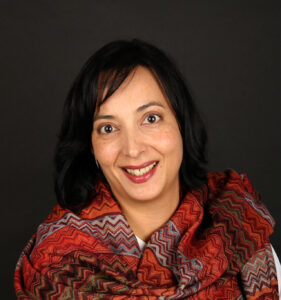
Sandra Araújo holds a PhD in Anthropology completed at Faculdade de Ciências Sociais e Humanas – Universidade Nova de Lisboa. Currently, she is a Junior Researcher at the Instituto de Ciências Sociais, Universidade de Lisboa (2021.03337.CEECIND/CP1696/CT0011. Her research project, Intelligence and Empire in the Portuguese Late Colonial Period, 1961-1975: Comparisons, Connections and Epistemes, focuses on the Serviços de Centralização e Coordenação de Informações (Intelligence Centralization and Coordination Services) and aims at examining the historical trajectory of this intelligence service branches’ within the framework of Portuguese imperial politics and administration, as well as to assess their part during the liberation wars. In 2022, she was an awardee of the First Book Grant competition by the Independent Social Research Foundation, with the project Spying on Muslims in Colonial Mozambique, 1964-74, which explores how Portuguese intelligence services sought to exploit Muslim communities to back its counter-insurgent war during the liberation struggle in colonial Mozambique. For the duration of the award, she was a visiting researcher at the Global History and Culture Centre at the University of Warwick.
About Tempos e Espaços Africanos series
This collection encompasses the spaces and times understood as two pillars of the creation, continuity, and transformation of African societies. The close and constant link between these two conceptual parameters makes it possible to grasp Africa, which, through this lens, can reclaim both its history and its capacity to imagine and shape its futures. The collection is coordinated by Professors Isabel Castro Henriques and Joana Pereira Leite, researchers at CEsA.
A Economia de África (ed. Vulgata)
Year: 1999
Author: Philippe Hugon
Empresas e Empresários Africanos (ed. Vulgata)
Year: 2000
Authors: Stephen Ellis & Yves-A. Fauré (dir.)
Álcool e Escravos: o comércio luso-brasileiro do álcool em Mpinda, Luanda e Benguela durante o tráfico transatlântico de escravos (c. 1480-1830) e o seu impacto nas sociedades da África dentral Ocidental (ed. Vulgata)
Year: 2002
Author: José C. Curto
Novas Relações com África: que perspectivas? (ed. Vulgata)
Year: 2003
Author: Isabel Castro Henriques (coord.)
África Negra. História e Civilizações – até ao século XVIII, Tomo I (ed. Vulgata)
Year: 2003
Author: Elikia M’Bokolo
O Trabalho Dignifica o Homem. Estratégias de sobrevivência em Luanda (ed. Colibri)
Year: Não informado
Author: Cristina Udelsmann Rodrigues
África Negra. História e Civilizações – Do século XIX aos nossos dias, Tomo II (ed. Colibri)
Year: 2007
Author: Elikia M’Bokolo
Subúrbios de Luanda e Maputo, 1ª edição (ed. Colibri)
Year: 2007
Authors: Jochen Oppenheimer & Isabel Raposo (coords.) Filipe Amado, Ana Bénard da Costa, Nuno Cunha, Carlos M. Lopes, Ramos Muanamoha, Carlos Sangreman, Mário Ribeiro, Cristina Rodrigues, Cristina Salvador, Gerhard Seibert
Os Ismailis de Moçambique: Vida económica no tempo colonial
Year: 2012
Authors: Joana Pereira Leite e Nicole Khouri
A Mulher em África – Vozes de uma margem sempre presente (ed. Colibri)
Year: 2018
Authors: Inocência Mata e Laura Cavalcante Padilha (org.)
Jihad Inevitável? Muçulmanos e Política em Moçambique depois da Independência(ed. Colibri)
Year: 2025
Author: Eric Morier-Genoud
Author: CEsA Communication (comunicacao@cesa.iseg.ulisboa.pt)
Images: CEsA/Reproduction

Launch Event for the Second Edition of the Catalogue “Deconstructing Colonialism, Decolonising the Imaginary”
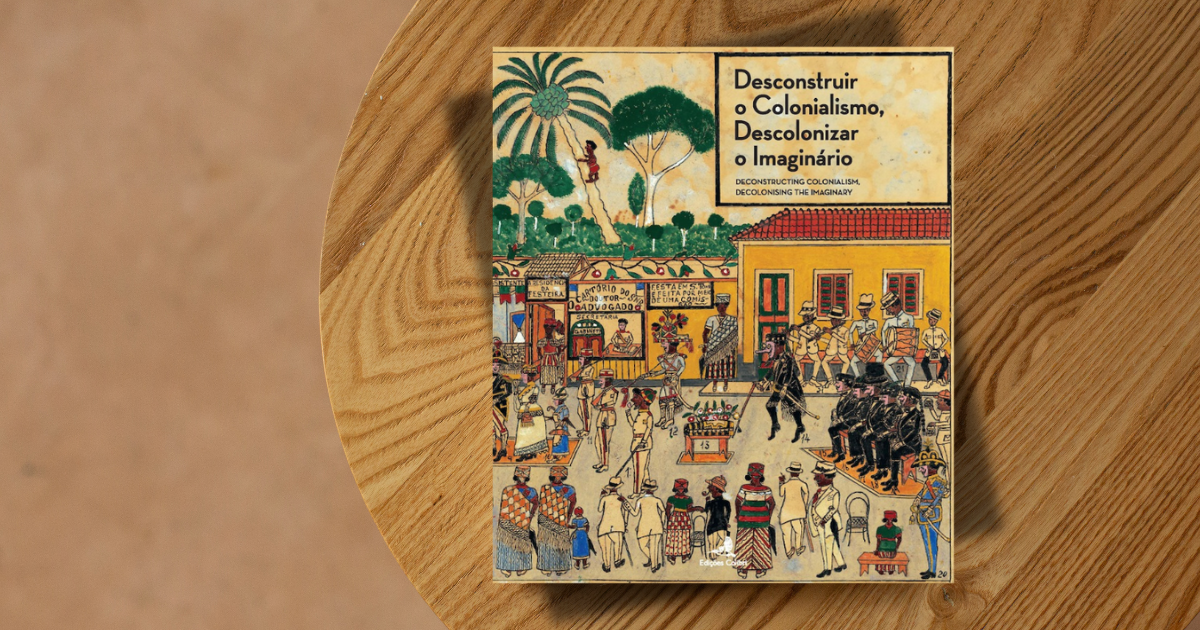
Museus e Monumentos de Portugal, the National Museum of Ethnology, CEsA – Centre for African and Development Studies (ISEG RESEARCH/ISEG/Universidade de Lisboa) and Edições Colibri are pleased to invite you to the Presentation Ceremony of the revised, expanded and bilingual 2nd Edition of the Catalogue “Desconstruir o Colonialismo, Descolonizar o Imaginário / Deconstructing Colonialism, Decolonising the Imaginary”, directed by Professor Isabel Castro Henriques, CEsA researcher, with a presentation by Professor Jean-Michel Tali (Universidade de Howard, USA).
The launch event of the 2nd Edition of the Catalogue will be held on 29 May 2025 (Thursday) at 6 p.m., at the National Museum of Ethnology (Av. da Ilha da Madeira – Lisbon).
The book accompanyes the exhibition with the same title open to the public until November 2, 2025, at the National Museum of Ethnology. It features contributions from around 30 researchers who delve into the various themes explored in the exhibition. Deconstructing Colonialism, Decolonising the Imagination. Portuguese Colonialism in Africa: Myths and Realities serves as a guide to the exhibition, which was conceived and coordinated by historian Isabel Castro Henriques. The project aims to present key aspects of Portuguese colonialism in Africa during the 19th and 20th centuries. Its objectives are to dismantle the myths created by colonial ideology, decolonize Portuguese imaginations, and contribute—through an accessible and educational approach—to a renewed understanding of Portuguese colonialism.
Read more:
Author: CEsA Communication Team (comunicacao@cesa.iseg.ulisboa.pt) with information from the Communication Teams of the National Museum of Ethnology and Edições Colibri
Image: Reproduction

Development Studies Seminars 2025 | Economic Development as a Concept: An Age of Diminished Expectations?
The Development Studies Seminars are an initiative that, since 1991, promotes research carried out in the areas of study of the Masters in Development and International Cooperation (MCDI) of ISEG and the PhD Programme in Development Studies of the University of Lisbon
Development Studies Seminars 2025
Topic: Economic Development as a Concept: An Age of Diminished Expectations?
Presenter: Professor Alice Nicole Sindzingre (CEsA & Paris-North Economics Centre, University Sorbonne-Paris-North, France)
Date: 27 May 2025 (Tuesday)
Hour: 6 p.m. – 8 p.m.
Venue: Novo Banco Room, 4th Floor Quelhas Building, ISEG (Access by Rua do Quelhas 6 1200-731, Lisbon, Portugal)
Free admission, in person event. Lecture in English.
About Alice Nicole Sindzingre

Alice Nicole Sindzingre is Research Associate at the CEPN (Paris-North Economics Centre, University Paris-North, France), and at the LAM Research Centre (‘Africas in the World’, National Centre for Scientific Research/CNRS-SciencesPo-Bordeaux, France). She taught in 2008-2010 at SciencesPo-Paris and in 2010-2014 in the department of economics of the University Paris-Nanterre. In 2005-2008, she wrote the monthly column on the theories of economic development in the French newspaper Le Monde. She has been a member of the Core Team of the World Bank World Development Report 2000-1 on poverty. She has conducted research on development economics and political economy as well as fieldwork in Sub-Saharan Africa (mainly in West Africa). She has published a great number of articles in academic journals and edited books on a large range of topics, including international trade, regional integration, foreign aid, China-Africa relationships, poverty traps, the theory of institutions, and the epistemology of economics.
Author’s publications with CEsA:
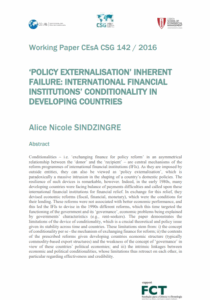 Working Paper # 142/2016: ‘Policy Externalisation’ Inherent Failure: International financial institutions’ conditionality in developing countries
Working Paper # 142/2016: ‘Policy Externalisation’ Inherent Failure: International financial institutions’ conditionality in developing countries
Abstract: Conditionalities – i.e. ‘exchanging finance for policy reform’ in an asymmetrical relationship between the ‘donor’ and the ‘recipient’ – are central mechanisms of the reform programmes of international financial institutions (IFIs). As they are imposed by outside entities, they can also be viewed as ‘policy externalisation’, which is paradoxically a massive intrusion in the shaping of a country’s domestic policies. The resilience of such devices is remarkable, however. Indeed, in the early 1980s, many developing countries were facing balance of payments difficulties and called upon these international financial institutions for financial relief. In exchange for this relief, they devised economic reforms (fiscal, financial, monetary), which were the conditions for their lending. These reforms were not associated with better economic performance, and this led the IFIs to devise in the 1990s different reforms, which this time targeted the functioning of the government and its ‘governance’, economic problems being explained by governments’ characteristics (e.g., rent-seekers). The paper demonstrates the limitations of the device of conditionality, which is a crucial theoretical and policy issue given its stability across time and countries. These limitations stem from: i) the concept of conditionality per se – the mechanism of exchanging finance for reform; ii) the contents of the prescribed reforms given developing countries economic structure (typically commodity-based export structures) and the weakness of the concept of ‘governance’ in view of these countries’ political economies; and iii) the intrinsic linkages between economic and political conditionalities, whose limitations thus retroact on each other, in particular regarding effectiveness and credibility.
Link: https://repositorio.ulisboa.pt/bitstream/10400.5/11719/1/wp142.pdf
Working Paper # 198/2024: The Relevance of the Concept of Cumulative Causation: Understanding growth trajectories in Sub-Saharan Africa
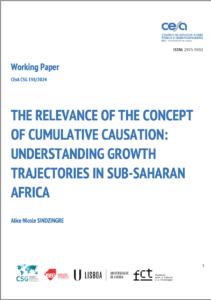
Abstract: Differences in growth trajectories among countries – including the possibility of divergence –, are a central issue in economics. Mainstream economics explain growth processes via varieties of neoclassical models, even improved with concepts such as institutions. Yet such models have difficulties in providing accurate accounts of the growth trajectories of many developing countries, notably low-income ones. It is argued that the growth paths of low-income countries are more appropriately explained by the theoretical framework that relies on the nexus of concepts of cumulative causation, non-linearities, threshold effects, self-reinforcing processes, irreversibility, path dependence and traps – though this approach remains marginal in mainstream economic analyses of growth and development. Firstly, this nexus of concepts is a powerful framework concerning the possibility and explanation of dynamic divergence regarding growth between countries, as it exhibits properties such as: the possibility of cumulative, dynamically self-reinforcing, processes; the existence of thresholds and tipping points; multiple equilibria. Secondly, cumulative causation, by definition, involves a combination of causes: its conceptual framework allows for the integration of several dimensions – economic, political, social, cognitive –, whose combination results in either virtuous or vicious circles. In developing countries, these causes (and their coalescence) typically consist in economic structures (e.g., commodity-based export markets), political institutions and social norms (predatory regimes, high inequality) as well as types of public policies.
Link: https://repositorio.ulisboa.pt/bitstream/10400.5/30144/1/Working%20Paper_198-2024_FINAL.pdf
Author’s seminars with CEsA:
Author: CEsA Communication (comunicacao@cesa.iseg.ulisboa.pt)
Images: CEsA/Reproduction
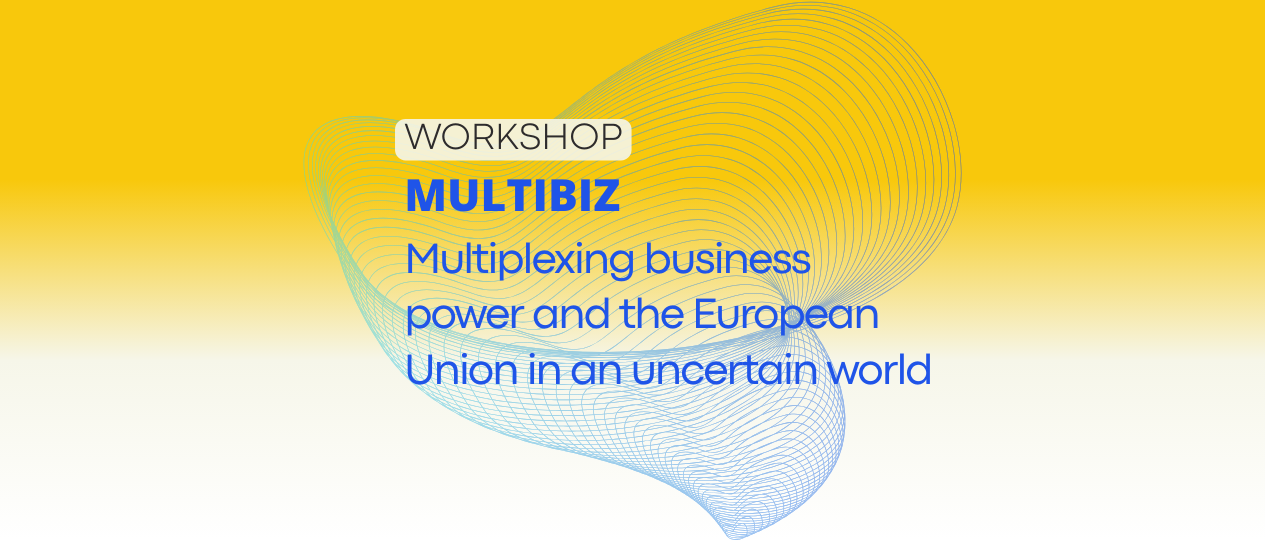
Workshop MULTIBIZ: Multiplexing business power and the European Union in an uncertain world
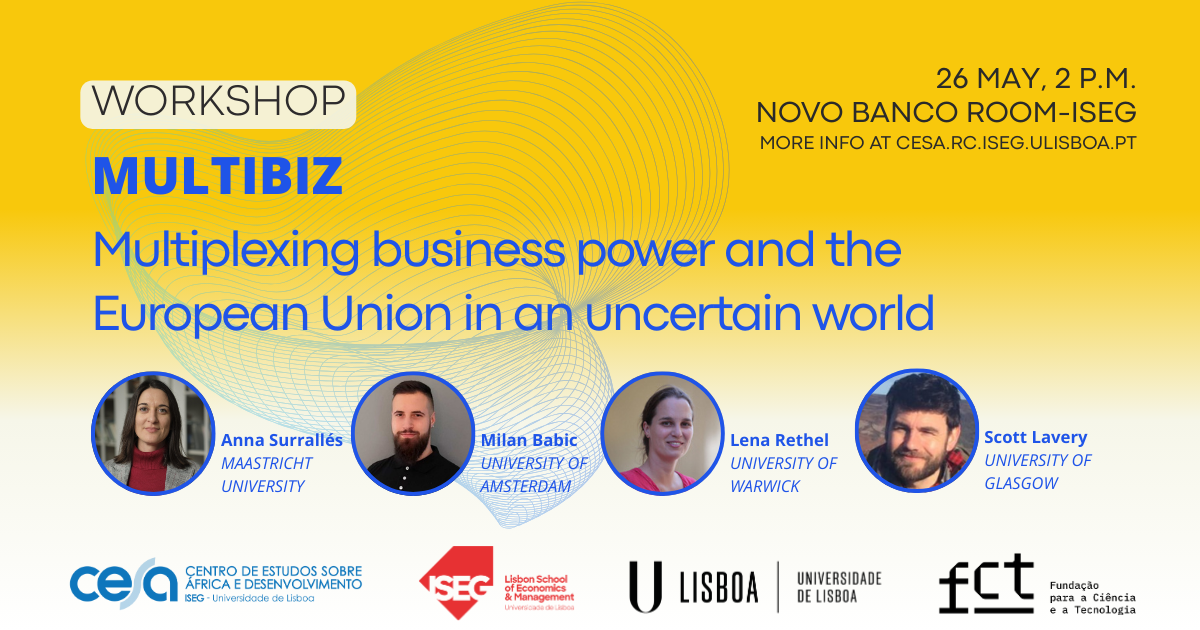
This workshop centers on the MULTIBIZ – Multiplexing Business Power: The EU and Global Infrastructure Competition, led by CEsA researcher Luís Pais Bernardo (CEsA/ISEG RESEARCH/ISEG-Universidade de Lisboa), which investigates the evolving nature of business power within a multiplexing global order. Taking the European Union’s Global Gateway strategy as a case study, the project confronts the reality of global infrastructure competition, framed by the European Commission as a “global battle of offers” to developing countries. This context raises critical questions about the role of business, positioned by key EU officials as the “keystone” for competitive investment, and whether its operation serves as both the means and ends of development itself.
The session will engage with the project’s core analytical objectives: developing a framework for studying business power in global development and understanding how it is changing amidst a prominent geoeconomic turn. Empirically, the focus is on analyzing how Global Gateway mobilizes business capabilities, assessing the developmental impact of Global Gateway-framed business, and examining the inherent tension between developmental aspirations and geoeconomic projection embedded in the strategy.
Discussion will draw upon the project’s conceptual work on business power—understood structurally and relationally—and initial exploratory case studies of Global Gateway flagship projects.
Workshop “MULTIBIZ: Multiplexing business power and the European Union in an uncertain world”
Date: 26 May 2025 (Monday)
Hour: 2 p.m. – 5 p.m.
Venue: Novo Banco Room – ISEG (Quelhas Building, 4th Floor, Rua do Quelhas 6, 1200-781, Lisbon, Portugal)
Organiser: Professor Luís Pais Bernardo (CEsA/ISEG RESEARCH/ISEG-Universidade de Lisboa)
Presentation #1: From Global Europe to Fortress Europe: The EU in a new world of regions (presenter: Scott Lavery, University of Glasgow)
Presentation #2: Developing sustainable finance taxonomies in the EU and ASEAN: convergence or contestation? (presenter: Lena Rethel, University of Warwick)
Presentation #3: Cable Wars? The Political Economy of Submarine Cables in an Era of Geoeconomic Competition (presenter: Milan Babic, University of Amsterdam)
Presentation #4: TBC (presenter: Anna Herranz-Surralès, Maastricht University)
Free admission, in-person event
About the speakers
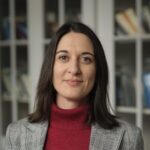 Anna Herranz-Surrallès (Maastricht University)
Anna Herranz-Surrallès (Maastricht University)
Anna Herranz-Surrallès is an associate professor of International Relations at Maastricht University. Her research primarily focuses on EU energy policy and global energy governance. This includes examining the development of EU energy diplomacy, green industrial policy, and the increasing geopoliticization of energy investments and infrastructure. She also studies the evolution of energy cooperation models in the EU’s relations with neighboring states.
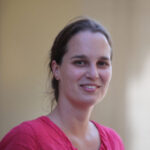 Lena Rethel (University of Warwick)
Lena Rethel (University of Warwick)
Lena Rethel is a professor of International Political Economy at the University of Warwick. Her research interests span the international politics of finance and development, the global governance of Islamic economies, and the structure of contemporary International Political Economy. Her work explores the theories and common understandings underpinning economic and financial policymaking, how these drive institutional changes like the expansion of capital markets and Islamic finance, and the resulting socio-economic impacts, often drawing insights from Southeast Asia, particularly Indonesia and Malaysia.
 Milan Babic (University of Amsterdam)
Milan Babic (University of Amsterdam)
Milan Babic is an associate professor in Political Economy at the University of Amsterdam. His work investigates significant transformations within the global political economy and their direct implications for contemporary climate politics. His research concerns the role of finance in facilitating sustainable transitions, with a specific focus on decarbonization processes across Europe and internationally, examining the political dimensions, including aspects related to state ownership in this transition.
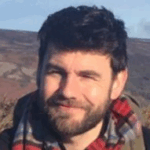 Scott Lavery (University of Glasgow)
Scott Lavery (University of Glasgow)
His work covers a broad spectrum of themes including monetary policy, EU industrial and trade policy, uneven development, state theory, European integration, welfare state restructuring, business power, and Brexit.
Read more:
WINNERS ANNOUNCEMENT – CEsA Internal Funding for Small Projects – 2024
Author: CEsA Communication (comunicacao@cesa.iseg.ulisboa.pt)
Images: CEsA/Reproduction
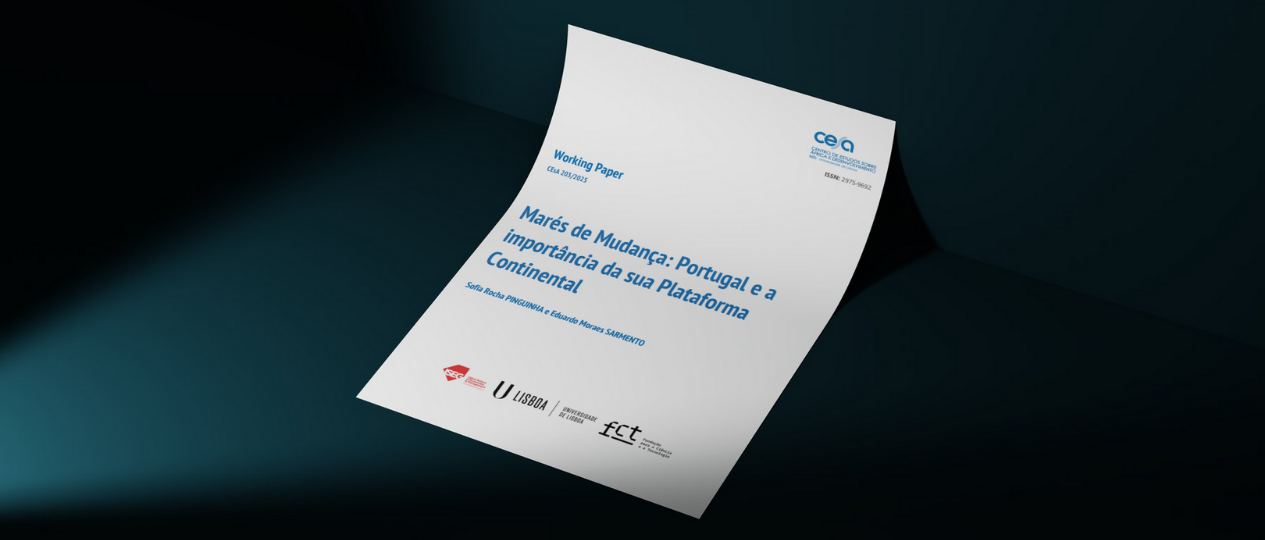
CEsA Working Paper analyses the challenges and opportunities of the expansion of the Portuguese continental shelf in the context of a sustainable blue economy

The article seeks to understand the extent to which the extension of the Portuguese continental shelf aligns with the country’s strategic and economic objectives, with particular emphasis on aspects related to the harnessing of its strategic potential
Throughout history, Portugal’s development and affirmation as a country have been closely tied to maritime exploration and dominance. Aware of the economic potential of ocean floors and marine biodiversity, and seeking to strengthen its sovereignty and international recognition, Portugal submitted a proposal on 11 May 2009 to the Commission on the Limits of the Continental Shelf (CLCS) to extend its continental shelf beyond the 200 nautical miles. However, the success of this proposal — which intertwines geopolitical, economic, and environmental dimensions — will depend on the country’s ability to balance strategic interests with environmental sustainability, particularly in the context of the blue economy.
CEsA Working Paper No. 203/2025, entitled Marés de Mudança: Portugal e a importância da sua Plataforma Continental (Tides of Change: Portugal and the Importance of Its Continental Shelf), aims to analyse the strategic potential of the continental shelf through two guiding questions: What motivations are driving Portugal’s proposal to expand its continental shelf? And what strategies should be adopted to harness the strategic potential of the Portuguese sea? The publication is authored by Sofia Rocha Pinguinha, who holds a master’s degree in Development and International Cooperation (ISEG – Universidade de Lisboa), and Eduardo Moraes Sarmento, PhD in Economics with a specialisation in Tourism and Professor at ISEG.
Working Paper No. 203/2025 can be downloaded from the CEsA collection, available through the Universidade de Lisboa Repository:
https://repositorio.ulisboa.pt/bitstream/10400.5/100623/1/Pinguinha%20Sofia%20e%20Eduardo%20Sarmento%20WP%20203-2025.pdf
Abstract:
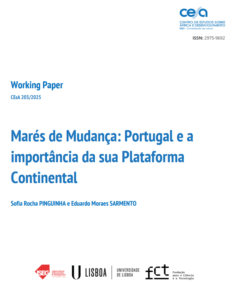 Portugal, known for its historic maritime traditions, is currently immersed in a strategic ambition regarding the expansion of its continental shelf driven by geopolitical, economic and environmental factors, placing the country before a dynamic maritime scenario full of challenges and opportunities. The rise of the blue economy, synonymous with a sustainable economy, redefines the indispensability of the ocean and its centrality in the balance of building the sustainable development that is sought globally (Cristas, 2022). Using a qualitative methodology, the aim is to reflect on the main benefits that Portugal can obtain from the possible approval of the expansion of its continental shelf, by the United Nations Organisation (UNO). The future, according to the National Strategy for the Sea 2021-2030 (República Portuguesa, 2021), should involve defining a strategy, based on a system of alliances, that will allow Portugal to move forward with the sustainable exploitation of the marine resources (Seguro, 2022).
Portugal, known for its historic maritime traditions, is currently immersed in a strategic ambition regarding the expansion of its continental shelf driven by geopolitical, economic and environmental factors, placing the country before a dynamic maritime scenario full of challenges and opportunities. The rise of the blue economy, synonymous with a sustainable economy, redefines the indispensability of the ocean and its centrality in the balance of building the sustainable development that is sought globally (Cristas, 2022). Using a qualitative methodology, the aim is to reflect on the main benefits that Portugal can obtain from the possible approval of the expansion of its continental shelf, by the United Nations Organisation (UNO). The future, according to the National Strategy for the Sea 2021-2030 (República Portuguesa, 2021), should involve defining a strategy, based on a system of alliances, that will allow Portugal to move forward with the sustainable exploitation of the marine resources (Seguro, 2022).
About the authors:
Sofia Rocha Pinguinha holds a Master’s degree in Development and International Cooperation (ISEG – Universidade de Lisboa).
Eduardo Moraes Sarmento holds a PhD in Economics with a specialization in Tourism. He is the coordinator of the Master’s in Development and International Cooperation at ISEG (University of Lisbon), a researcher, president of CEsA, and a member of the Scientific Committee of ISEG Research.
Click here to explore the full collection of CEsA Working Papers
Author: CEsA Communication Team (comunicacao@cesa.iseg.ulisboa.pt)
Image: Reproduction
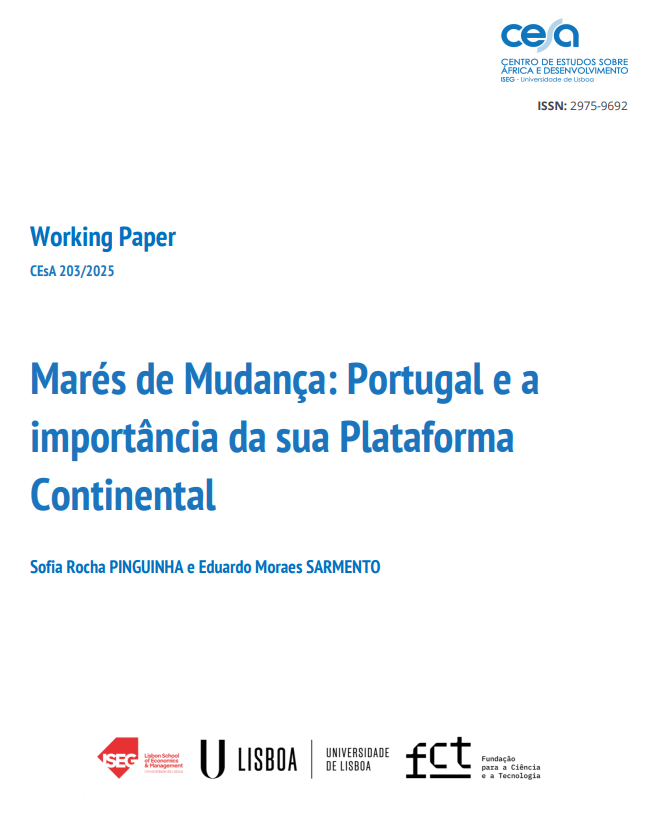
Working Paper 203/2025: Marés de Mudança: Portugal e a importância da sua Plataforma Continental
Abstract:
Portugal, known for its historic maritime traditions, is currently immersed in a strategic ambition regarding the expansion of its continental shelf driven by geopolitical, economic and environmental factors, placing the country before a dynamic maritime scenario full of challenges and opportunities. The rise of the blue economy, synonymous with a sustainable economy, redefines the indispensability of the ocean and its centrality in the balance of building the sustainable development that is sought globally (Cristas, 2022). Using a qualitative methodology, the aim is to reflect on the main benefits that Portugal can obtain from the possible approval of the expansion of its continental shelf, by the United Nations Organisation (UNO). The future, according to the National Strategy for the Sea 2021-2030 (República Portuguesa, 2021), should involve defining a strategy, based on a system of alliances, that will allow Portugal to move forward with the sustainable exploitation of the marine resources (Seguro, 2022).
Cite this Working Paper:
Pinguinha, Sofia Rocha and Eduardo Moraes Sarmento (2025). “Marés de Mudança: Portugal e a importância da sua Plataforma Continental”. CEsA/CSG – Documentos de trabalho nº 203/2025
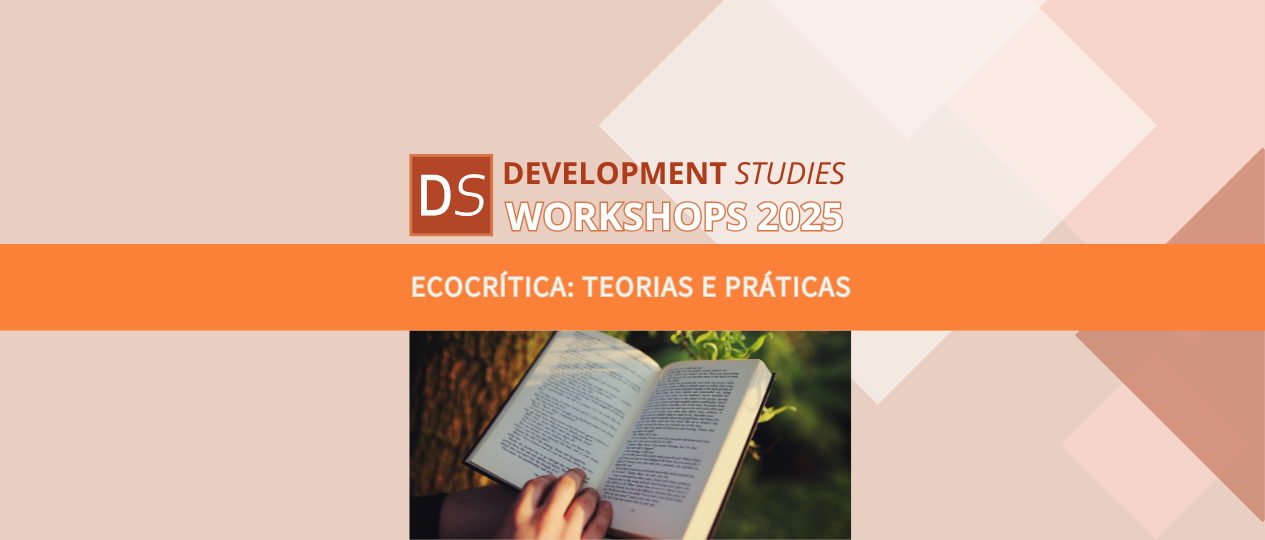
Development Studies Workshops 2025 | Ecocrítica: teorias e práticas
The Development Studies Seminars are an initiative that, since 1991, promotes research carried out in the areas of study of the Masters in Development and International Cooperation (MCDI) of ISEG and the PhD Programme in Development Studies of the University of Lisbon
Development Studies Workshops 2025
Topic: Ecocrítica: teorias e práticas
Date: 15 May 2025 (Thursday)
Time: 10 a.m. to 5 p.m.
Venue: Amphitheatre 1, Quelhas Building – ISEG (Ed. Quelhas, 4th Floor, Rua do Quelhas 6, 1200-781, Lisboa, Portugal)
Organisers: Professor Jessica Falconi and Professor Ana Mafalda Leite
Presentation 1: O Ambientalismo Literário do Pobre. Notas para uma ecocrítica pós-colonial das Literaturas Africanas (speaker: Elena Brugioni, CEsA & UNICAMP, Brazil)
Presentation 2: Pensar com a Natureza, Perspectivar um Caminho Académico (speaker: Isabel Alves, online, UTAD-CEAUL, Portugal)
Presentation 3: Pensar as Atmosferas do Antropoceno a partir da Ecopoética (speaker: Nuno Marques, Environmental Humanities Laboratory, KTH Royal Institute of Technology, Sweden)
Presentation 4: Projeto ECO: Vida mais-que-humana na cultura humana – uma perspectiva amazónica (speaker: Patricia Vieira, CES-UC, Portugal)
Presentation 5: Das Máquinas no Jardim: Imaginar o Fim do Mundo (speaker: José Duarte, Universidade de Lisboa-CEAUL, Portugal)
Presentation 6: Ecocrítica do Crescimento Económico (speaker: Carlos Manuel Antunes, Faculdade de Ciência-UL, Portugal)
Presentation 7: Navegar nas Humanidades e Derivas Azuis dos Estudos de Língua Inglesa (speaker: Margarida Vale de Gato, Universidade de Lisboa-CEAUL, Portugal)
Presentation 8: Poesia Entoada e Chamanismo, uma Reaproximação entre Chamamentos (speaker: Maurício Vieira, poet, Brazil)
Presentation 9: A Hidroficção em Perspetiva: Leitura ecocrítica de A Arca de Não é, de Bento Baloi (speaker: João Fernando André, FLUL/HUMA/Alliance Frainçaise, Portugal)
Presentation 10: Resistência e utopia, do corpo ao território: cruzamentos entre arte, ecologia, educação e ativismo (speaker: Rebecca Mateus, Associação Dunas Livres, Orchidaceae collective, Coletivo HortaFCUL, Portugal)
Free admission, in-person event
About the Workshop
The workshop aims to discuss the broad theme of human impact on the planet through the various critical perspectives and analytical categories that have emerged within the field of ecocriticism and, more broadly, the environmental humanities, which regard climate change as a crucial topic across multiple areas of study. These perspectives and categories allow for a reassessment of diverse forms of cultural production originating from distinct geographical and epistemological contexts.
The goal is to foster dialogue and theoretical-critical debate across areas and disciplines that have afforded more or less space to environmental concerns. Indeed, while Anglo-American Studies have been pioneers in the theoretical domain of ecocriticism, the same cannot be said of studies focused on Portuguese-language African literatures and cinemas. These cultural productions have only recently begun to be examined through environmentalist and ecocritical lenses.
To what extent are ecocritical approaches to various cultural and literary productions dominated by Western perspectives? How can different forms of knowledge be brought together? What can we learn by listening to thoughts and positions emerging from the Global South? How can we foster dialogue and the exchange of knowledge and practices towards a multifaceted approach that is not exclusively centred on the West?
The workshop seeks to address these questions by bringing theory and practice into dialogue through the contributions of scholars and activists.
Download the full programme
Read more:
Author: CEsA Communication (comunicacao@cesa.iseg.ulisboa.pt)
Images: CEsA/Reproduction

Recording of the DS Seminar “Between the Climate and the Land: Perceptions and Practices of Small-Scale Farmers in Santo Antão” available on CEsA’s YouTube Channel
The Communication ‘Between the Climate and the Land: Perceptions and Practices of Small-Scale Farmers in Santo Antão’ was presented by Professor Sónia Frias (CEsA and ISCSP, Portugal) and Professor Arlindo Fortes (CEsA and Universidade de Santiago, Cape Verde) on 8 April 2025 under the Development Studies Workshop on Environment, Climate Change and Development. The session was recorded and is now available on CEsA’s YouTube channel.
This event was part of the Development Studies Seminars, an initiative that, since 1991, has been promoting research in the study areas of the Master’s in Development and International Cooperation (MDCI) at ISEG and the PhD Programme in Development Studies (PDED) at the University of Lisbon.
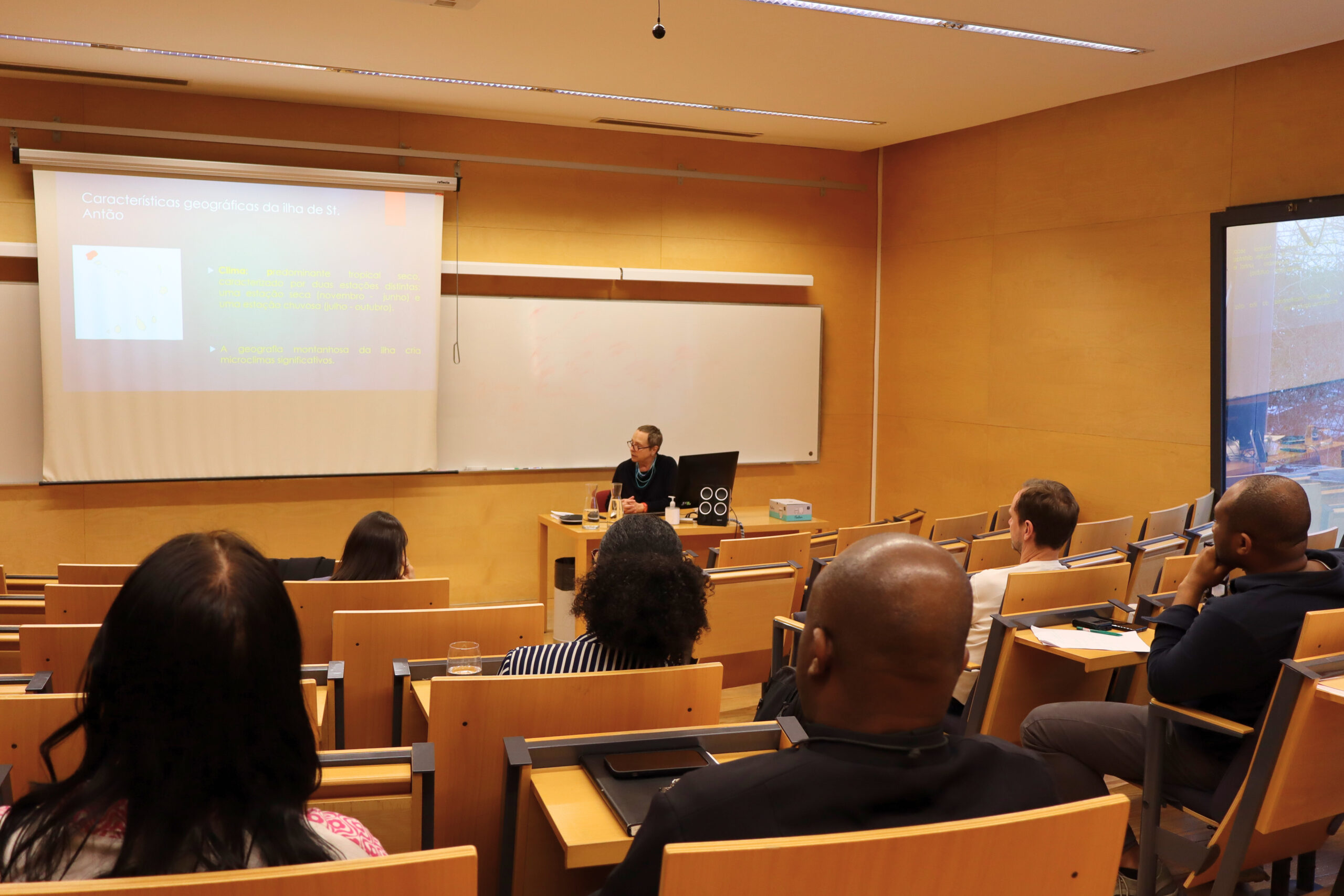
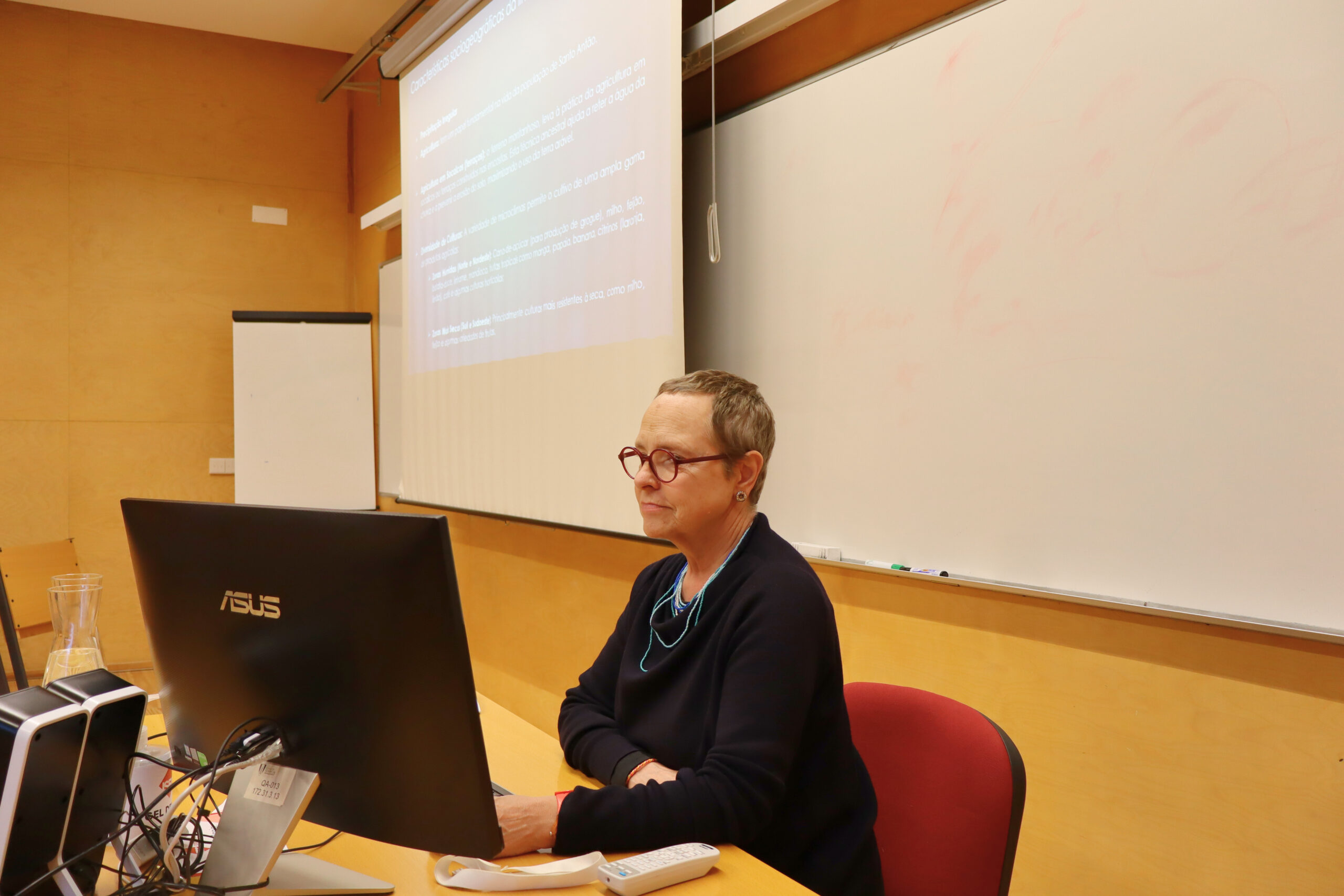
Watch the seminar recording below:
Read more
Development Studies Workshops 2025 | Ambiente, Alterações Climáticas e Desenvolvimento
Between the Climate and the Land: Perceptions and Practices of Small-Scale Farmers in Santo Antão (Recording on YouTube)
Author: CEsA Communication (comunicacao@cesa.iseg.ulisboa.pt)
Images: CEsA/Reproduction

